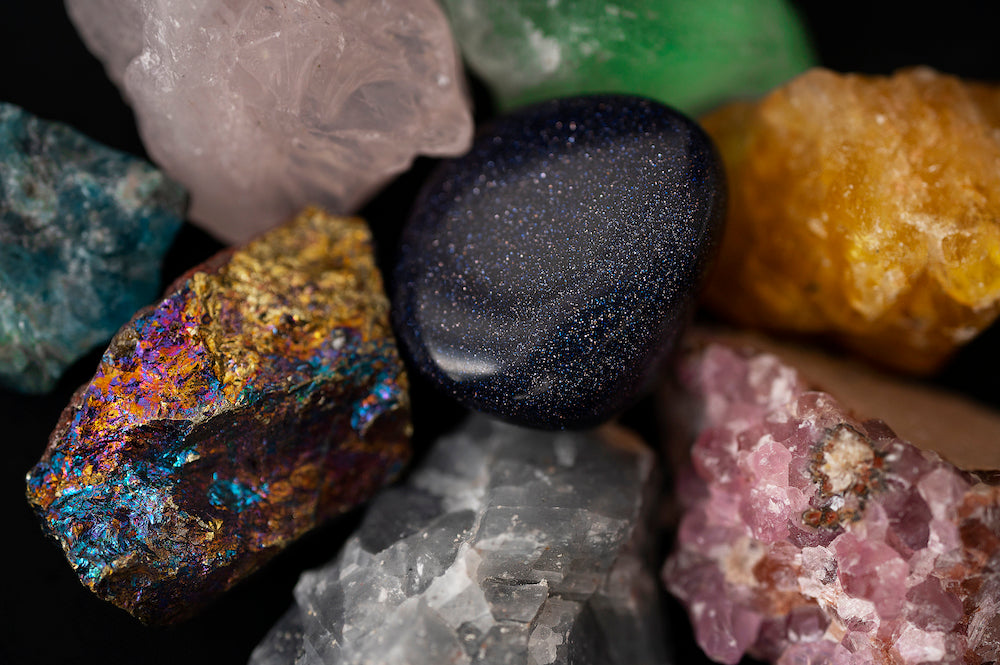
The Ethical Journey: Unveiling the Process of Acquiring Ethical Stones
As conscious consumers, we have become increasingly aware of the impact our choices have on the world. In the realm of fine jewelry, the demand for ethical stones has surged as individuals seek transparency, sustainability, and fairness in the sourcing of precious gemstones. In this blog, we take a closer look at the process of acquiring ethical stones, shedding light on the steps taken to ensure responsible practices that benefit both the environment and the communities involved.
1. Traceability and Transparency:
Ethical stone sourcing begins with a commitment to traceability and transparency throughout the supply chain. Responsible jewelers and gemstone suppliers strive to provide clear information about the origin of their stones, ensuring that they come from conflict-free regions and are not associated with any unethical practices, such as child labor or environmental exploitation. Transparent documentation and certifications further validate the journey of each stone, providing assurance to consumers.
2. Responsible Mining Practices:
Responsible mining practices play a crucial role in obtaining ethical stones. Ethical stone suppliers prioritize working with mines that adhere to strict environmental standards, ensuring minimal ecological impact. They support initiatives that promote sustainable mining techniques, including proper waste management, reclamation of land, and water conservation. By partnering with mining operations that prioritize the well-being of workers and the environment, the ethical stone industry aims to create a positive and sustainable impact on mining communities.
3. Fair Trade Initiatives:
The concept of fair trade extends beyond commodities like coffee and cocoa; it has also made its way into the world of gemstones. Fair trade initiatives focus on establishing fair working conditions and providing fair wages for miners and artisans involved in the stone extraction and cutting processes. These initiatives empower communities by fostering economic stability, education, and healthcare opportunities. When purchasing stones from fair trade sources, consumers contribute to a more equitable and sustainable gemstone industry.
4. Support for Artisanal Miners:
Artisanal miners, who often work in small-scale operations, play a significant role in the ethical stone supply chain. Ethical stone sourcing involves supporting these independent miners, ensuring fair compensation for their labor and providing access to necessary resources and tools. By creating direct trade relationships and eliminating middlemen, ethical stone suppliers foster economic empowerment and help uplift the livelihoods of artisanal miners and their communities.
5. Certification and Verification:
Certifications and third-party verification systems are essential components of the ethical stone sourcing process. Trusted organizations, such as the Responsible Jewellery Council (RJC) and the Kimberley Process Certification Scheme (KPCS), set standards and conduct audits to ensure compliance with ethical practices. Certifications like the RJC's Chain-of-Custody and the KPCS's Kimberley Process Certification help guarantee that stones are sourced ethically, free from human rights violations and environmental harm.
6. Community Development and Social Responsibility:
Ethical stone sourcing goes beyond just acquiring stones responsibly; it also involves contributing to community development and social responsibility. Ethical stone suppliers often invest in community projects, such as education and healthcare initiatives, to improve the lives of those living in mining areas. By supporting sustainable development, these suppliers aim to create a positive and lasting impact on local communities and help break the cycle of poverty.
Conclusion:
The process of acquiring ethical stones is a multi-faceted journey that involves traceability, responsible mining practices, fair trade initiatives, support for artisanal miners, certifications, and community development. Through a commitment to transparency and sustainability, ethical stone sourcing aims to protect the environment, uphold human rights, and create a fair and equitable industry. As consumers, we have the power to make informed choices and support jewelry brands that prioritize ethical stone sourcing, ensuring that the beauty we admire also carries a story of positive impact.